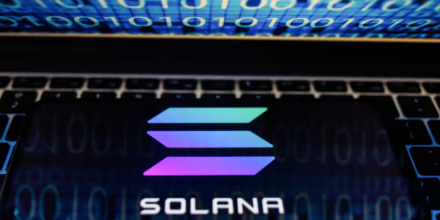Babylon Labs Launches Trustless Bitcoin Vaults to Unlock Native BTC for DeFi
Babylon Labs has unveiled a major development in decentralized finance (DeFi) with the launch of trustless Bitcoin vaults, enabling native BTC to be used directly in lending, stablecoin issuance, and perpetual trading without the need for custodians, bridges, or wrapped tokens.
Babylon Labs has unveiled a major development in decentralized finance (DeFi) with the launch of trustless Bitcoin vaults, enabling native BTC to be used directly in lending, stablecoin issuance, and perpetual trading without the need for custodians, bridges, or wrapped tokens.
Despite being the largest crypto asset by market cap, over 99% of Bitcoin remains idle. Only about 1% is used in DeFi, mostly via wrapped products like wBTC and cbBTC, which rely on third-party custodians. Babylon’s new vault system introduces a non-custodial alternative that keeps BTC on its native blockchain while allowing it to function as DeFi collateral across multiple ecosystems.
What if native BTC could power lending, stablecoins, and perps, all without bridges or custodians?
Trustless Bitcoin vaults make it possible.
Here’s how 🧵 pic.twitter.com/mHxPsYPcka
— Babylon (@babylonlabs_io) August 6, 2025
The trustless Bitcoin vaults use pre-signed Bitcoin transactions embedded with cryptographic spending conditions. Users can only withdraw locked BTC by submitting zero-knowledge proofs (ZKPs) that align with smart contract logic. This ensures that vault rules such as liquidation thresholds or redemption rights are enforced without intermediaries.
Powered by BitVM3, the system enables Bitcoin-native proof verification through zero-knowledge protocols and garbled circuits. This allows the Bitcoin UTXOs to interact with DeFi smart contracts on networks like Ethereum and Cosmos without leaving the Bitcoin chain.
In practical terms, users can deposit BTC into a vault and borrow stablecoins on Ethereum. If loan terms are met, they retrieve their BTC. If not, liquidators with valid ZKPs can claim the collateral—all trustlessly and without custodial risk.
The vaults also support advanced use cases such as perpetual DEX collateral, liquid staking, and stablecoin minting. Babylon’s broader protocol further allows staked BTC to earn rewards while remaining usable in DeFi.
With this launch, Babylon positions trustless Bitcoin vaults as a foundational primitive for the emerging BTCFi sector, fully composable, secure, and decentralized.
However, the launch coincided with a major event: a massive $1.26 billion BTC unstaking from Babylon’s staking protocol. On April 17, Lookonchain flagged four wallets that withdrew 14,929 BTC, slashing Babylon’s total value locked (TVL) by 32%.
Disclaimer: The content of this article solely reflects the author's opinion and does not represent the platform in any capacity. This article is not intended to serve as a reference for making investment decisions.
You may also like
Content Token Boom: Is Base's "Creator Economy 2.0" a Revolution or Just Another Game for Whales to Profit From?
Content Coins and Creator Coins have been proposed as new monetization solutions for creators on Rollup chains, generating revenue through token issuance and transaction fees. However, these models face issues such as speculation, market manipulation, and misaligned incentives. Summary generated by Mars AI This summary was produced by the Mars AI model, and the accuracy and completeness of its content are still being iteratively improved.

JPMorgan calls for "overweight" on China: Buy on dips, strong gains expected next year!
Wall Street giants are sounding the call to action, with JPMorgan and Fidelity International both indicating that now is an excellent time to enter the market, as the potential returns next year will far outweigh the risks!
Infinex will launch a Sonar token sale, aiming to raise $15 million.
